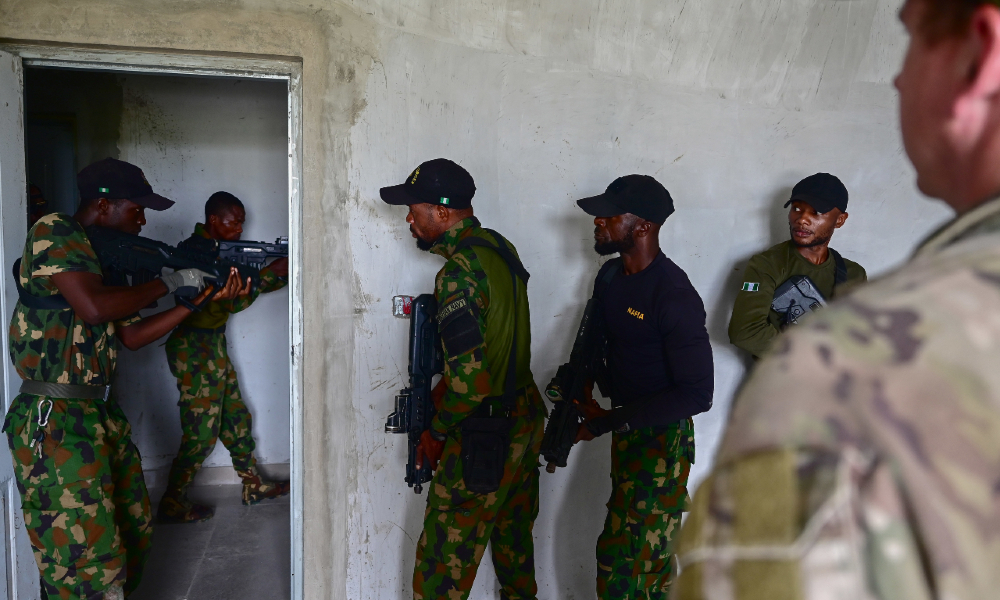Easing Access to Assets for Victims of Narcoterrorism
As the Justice Against Sponsors of Terrorism Act enjoys the lion’s share of attention, another bill aimed at facilitating compensation for American victims of terrorist attacks seems to be sailing below the radar. The Clarifying Amendment to Provide Terrorism Victims Equity Act—the CAPTIVE Act for short—was passed in the House on July 12.
Published by The Lawfare Institute
in Cooperation With

As the Justice Against Sponsors of Terrorism Act enjoys the lion’s share of attention, another bill aimed at facilitating compensation for American victims of terrorist attacks seems to be sailing below the radar. The Clarifying Amendment to Provide Terrorism Victims Equity Act—the CAPTIVE Act for short—was passed in the House on July 12. A Senate version, sponsored by Sen. Bill Nelson (D-FL) and Sen. Marco Rubio (R-FL), is currently being considered by the Senate Banking committee where Chairman Richard Shelby (R-AL), quickly joined as a co-sponsor. If passed by the Senate, the bill would allow American victims of acts of terrorism suing under the civil damages provision of the Anti-Terrorism Act (ATA) to access relevant terrorist assets frozen under Treasury’s counter-narcotics blocking authorities.
According to the House Judiciary Committee’s Report, the bill arose in part out of a lawsuit by three U.S. citizens who were held hostage by the Revolutionary Armed Forces of Colombia (FARC). From 2003 to 2008, the three Defense Department contractors were held for over five years—1,967 days to be exact—after their plane crash landed during what DOD called “a routine aerial mission to detect cocaine crops over southern Colombia.” Though many criticized the U.S. government’s handling of the crisis at the time, the three were eventually rescued along with a number of other hostages in a daring raid by Columbian commandos. They subsequently wrote a book about their experience and sued the FARC under the ATA.
While their book became a bestseller, the lawsuit soon faced challenges. Though the plaintiffs quickly secured a default judgment against the FARC for $318 million, satisfying that judgment proved problematic. The plaintiffs turned to § 201 of the Terrorism Risk Insurance Act of 2002 (TRIA), which allows plaintiffs in qualifying civil terrorism suits to satisfy their judgment with relevant assets frozen under two authorities: the International Emergency Economic Powers Act (for example, assets frozen under Treasury’s terrorism sanctions program) or the Trading With the Enemies Act (for example, assets frozen under the Cuban Assets Control Regulations). Significantly, however, the TRIA does not include assets frozen under the Kingpin Act, one of the government’s main counter-narcotics sanctions authorities.
Enter Mercurio International, a Columbian exchange house designated by OFAC in 2008 under the Kingpin Act for its role in the laundering of FARC narcotics proceeds; as long as Mercurio was designated, any of its assets under U.S. jurisdiction were required to be frozen. The district court ordered Mercurio’s assets executed, reasoning that the OFAC designation showed that Mercurio was an “agency or instrumentality of [a] terrorist party” under the TRIA. Order at 2–3, Stansell v. Revolutionary Armed Forces of Colombia, No. 8:09-cv-02308-RAL-MAP (M.D. Fla. Mar. 8, 2011). After all, the FARC is a dual-designee: it has been designated both as a Foreign Terrorist Organization (FTO) and under the Kingpin Act. Unfortunately for the three plaintiff’s, the Eleventh Circuit saw things differently:
Section 201(d)(2)(A) [of the TRIA] declares that “blocked asset” means an asset frozen under select provisions of the Trading Act and the Economic Powers Act. Assets frozen under the Kingpin Act, however, are absent from that definition. The unavoidable conclusion is that “blocked assets” under the Terrorism Act does not mean assets frozen pursuant to the Kingpin Act. . . . Expanding § 201(d)(2)(A) beyond its unambiguous terms is an action only Congress may take.
So back to Congress the three plaintiffs went. Now, the ultimate result of their efforts appears to be the CAPTIVE Act, which alters the TRIA in two ways: First, it would allow victims of acts of terrorism to—like the three FARC hostages—to access assets of the terrorist party or its agency or instrumentality frozen under the Kingpin Act. Second, it would limit the scope of the TRIA’s attachment provisions so that blocked assets would only be available to plaintiffs who are U.S. nationals, members of the military, or government employees/contractors. And, significantly for the three former FARC hostages, the act would apply to judgments that have already been entered.
According to Reuters, the Administration does not oppose the CAPTIVE Act, which apparently resolved policy concerns raised by an earlier version of the bill. And the Supreme Court’s recent decision in Bank Markazi removes at least several possible judicial concerns. As Yishai Schwartz pointed out, Bank Markazi concerned a provision of Iran Threat Reduction and Syria Human Rights Act of 2012, 22 U.S.C. § 8772, which, like the CAPTIVE Act, made specific assets available for execution. But unlike the CAPTIVE Act, § 8722 is extraordinarily specific, identifying the relevant assets as those at issue in a single (albeit consolidated) case; the legislation even includes the docket number. The Bank Markazi Court nevertheless upheld § 8722, including its retroactive application, closing with language making it clear that Congress was on solid ground: “By altering the law governing the attachment of particular property belonging to Iran, Congress acted comfortably within the political branches’ authority over foreign sovereign immunity and foreign-state assets.”
Regardless, Mercurio may have dodged a bullet this time—it was delisted by OFAC on March 30, 2011.





